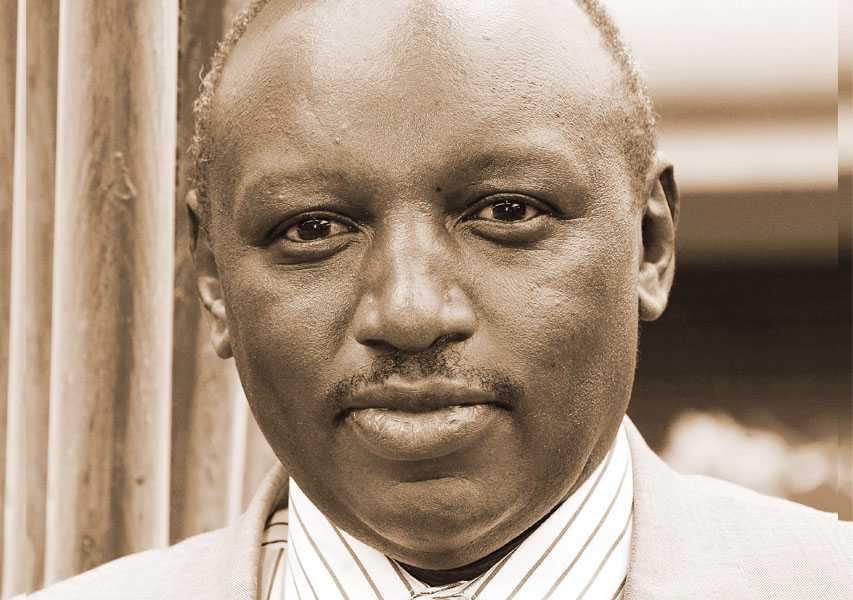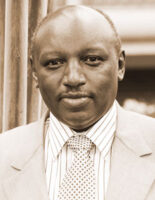
Popularly known as ‘ZK’ by his supporters, Zakayo Kipkemoi Cheruiyot was one of the most powerful figures in President Daniel arap Moi’s government where he served as Permanent Secretary (PS) for Provincial Administration and Internal Security between 1997 and 2003. A highly secretive and media-shy person, Zakayo Cheruiyot was a close confidant and a trusted ally of Moi; the fact that he was entrusted with the powerful Internal Security docket lends credence to this argument.
The holder of a Bachelor’s Degree in Political Science from the University of Nairobi, Cheruiyot was born in Kapsegut Village, Bureti, in Kericho County in 1954 and rose fast through the ranks from a District Officer (DO) to a powerful operative in Moi’s inner circle.
A behind-the-scenes kind of person, Cheruiyot served as a DO in a number of areas before he was promoted to Deputy Provincial Commissioner for the Rift Valley Province in 1987, a move that opened the way to even bigger things for him.
By the time Moi retired in 2002, Cheruiyot was so powerful that his name had become synonymous with power, in the same league as Sally Kosgei (Head of Public Service and the most powerful woman in the country at the time), Cabinet Minister Nicholas ‘Total Man’ Biwott and Joshua Kulei, Moi’s Private Secretary.
Cheruiyot’s tenure in government coincided with the period when Kenya became a target of terrorist attacks, with first the 1998 bombing of the US Embassy in Nairobi, and later the Kikambala bombing of 2002. The dramatic capture of Kurdish rebel leader Abdullah Ocalan in 1999 also happened during his time as Internal Security PS.
Because of his shrewdness and exercise of absolute power Cheruiyot, a smooth and silent operator, goes down in history as one the most influential PSs in Kenya’s government. Others in this list include Duncan Ndegwa, Geoffrey Kariithi, Kenneth Matiba, Francis Muthaura, Jeremiah Kiereini, Simeon Nyachae, Sally Kosgey and Hezekiah Oyugi.
In the 2002 General Election, Moi’s heir-apparent and KANU candidate Uhuru Kenyatta lost to Mwai Kibaki, who rode to power on the National Alliance of Rainbow Coalition (NARC) wave, a conglomeration of opposition parties including the National Alliance Party of Kenya and Liberal Democratic Party of Kenya (LDP) under the tutelage of Raila Odinga.
Cheruiyot was replaced in the same capacity by Dave Mwangi in a purge that saw other senior figures in the Moi administration sent packing. These included the Commissioner of Police Philemon Abong’o, who served between 1999 and 2003, the Director of the Criminal Investigations Department Francis arap Sang, and the Head of the Presidential Escort Unit Nixon Boit.
Although he only served in the last five years of Moi’s 24-year presidency, Cheruiyot left an indelible mark on the country’s history – both positive and negative – and the fact that he was among the first high-profile individuals to be sacked by Kibaki lends credence to this argument.
Out went ‘ZK’ and his powerful friends and in came powerful individuals such as Francis Muthaura, who replaced Sally Kosgei, and a clique of powerful Cabinet Ministers who enjoyed unrestricted access to the President, such as Chris Murungaru (Internal Security), David Mwiraria (Finance), Kiraitu Murungi (Energy), Martha Karua (Constitutional Affairs) and Njenga Karume (Defence).
After being relieved of his duties by newly-elected President Kibaki, Cheruiyot led a quiet life, occasionally fighting off corruption claims both in and out of court before plunging into politics in 2007.
He won the Kuresoi South parliamentary seat on a United Republican Party (URP) ticket in 2007. The soft-spoken former PS is credited with opening a number of schools in Bureti Sub-County and Kuresoi South where he was MP for 10 years.
During this time he helped to establish several learning institutions, including Moi Amalo, Kiptaragon, Silibwet, Siwot Girls, Emitik Girls, Sinendet, Ambusket, Kapkoi, Arorwet, Ainamoi, Kiptagich and Olenguruone Township Secondary schools. The former PS and MP has maintained a low profile since he exited the political arena.
